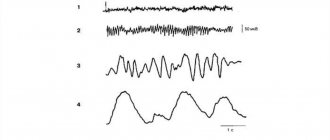Fighting addiction to alcohol is quite long and difficult, plus everything, this struggle may not always end with the result for which they begin to do all this. There are very frequent cases that therapy can only help temporarily, and then everything returns to its place. It happens that tablets, injections and ampoules can minimize the symptoms of physical cravings, but cannot eliminate the psychological influence of alcohol. Therefore, it is important to resort to comprehensive methods, using both physical and psychological struggle in this case. Hypnosis for alcoholism is especially popular because it is a fairly safe but effective technique.
What effect does hypnosis have on alcoholism?
Hypnosis for alcoholism is one of the coding methods, which is getting rid of the desire for alcohol through suggestibility, and in one session. According to basic data, only persons with higher medical education can conduct hypnosis of this kind, and only people who have been trained in psychotherapy can work.
Treatment must be carried out only in a medical building. Such sessions should not be carried out at home under any circumstances. Although despite this, there are those specialists who practice hypnosis at home.
What are the features of this technique:
The main goal of hypnosis for alcohol addiction is to make a person have an aversion to drinking alcohol or complete indifference to any kind of drinks that contain alcohol.
Treatment with hypnosis takes place only in inpatient hospitals after the doctor has conducted the necessary conversation with the patient;
It is necessary that the alcoholic himself has a great desire to get rid of his addiction. Otherwise, everything will be in vain.
The doctor is simply obliged to tell all the details to his patient about the very essence of this hypnotic suggestion and talk about how to behave during the session of this procedure itself.
Hypnotic suggestion can be individual or group.
The office in which treatment is taking place must be isolated from all unnecessary noise.
The patient should sit on comfortable couches or chairs. Loose clothing that does not restrict movement.
The session itself is often divided into three parts: trance, the suggestion itself against alcohol, and directly consolidating the entire result by testing alcohol or inhaling it.
Indications and contraindications for hypnotherapy
The decision to use such therapy is made individually. There are indications and contraindications for hypnosis.
An indication for hypnotherapy for alcoholism is the lack of effectiveness of other coding methods and worsening symptoms of addiction. Hypnosis is indicated only when a person realizes that such coding will prevent his physical and mental degradation. However, he cannot get rid of the addiction on his own.
Treatment of alcoholism with hypnosis is contraindicated in cases where a person has:
- Serious mental disorders;
- Acute and chronic infectious diseases;
- Neurological pathologies (epilepsy), convulsive syndrome;
- Problems with the functioning of the heart and blood vessels;
- Diseases of the thyroid and pancreas, liver, urinary organs;
- Traumatic brain injuries;
- Oncological diseases.
Contraindications to hypnosis treatment are also pregnancy and old age.
Hypnotherapy is not performed on people under 18 years of age.
How does hypnosis work?
The specialist himself uses a word or intonation that has a certain effect on a person’s mental state and inhibits the functioning of the brain.
Only active work takes place through a separate area - rapport. In this case, a person’s critical thinking is completely disabled; the person drinking trusts the doctor’s beliefs that alcohol is harmful and disgusting to him. That at the sight or smell a feeling of disgust, indifference or fear appears.
The duration of such a session is no more than 1 hour.
Female alcoholism - help, I'm a drunkard: how to cure female alcoholism
In recent years, such an unpleasant phenomenon as female alcoholism is far from uncommon. Unfortunately, recently there are more and more girls who start drinking alcohol at the age of 12-13 years. And studies have revealed that about 75% of women begin to abuse alcohol before reaching 18 years of age. As a rule, after 30 years, when a woman lives an independent, conscious life, she begins to drink alcohol in large quantities and much more often. In most cases, this is due to emotional experiences. This is how a woman’s dependence on alcohol begins. One of the main differences between female and male alcoholism is that the former occurs faster and proceeds unnoticed at first, since women like to drink alone, without attracting outside witnesses.
Effective programs for the treatment of female alcoholism
Types of hypnosis
There are many different methods that are used to hypnotize an alcoholic. Its encoding occurs using the methods described below.
- Ericksonian hypnosis. With this method, the patient enters a trance on his own - this is its main difference from other methods of hypnosis treatment. At such a moment, structures are connected that are responsible for a person’s intuition and imaginative thinking. Greater access to resources of positive experience opens up.
- Hypnosuggestive psychotherapy. This is a classic treatment option for various addictions in hypnotic sleep. The doctor instructs the patient not to use alcohol anymore;
- Anchor method. This method is based on conditioned reactions and there is no need to put the patient into a deep trance. The doctor must determine the anchor mark and use it to launch or inhibit the necessary programs of the alcoholic’s command. Such marks are based on positive and negative feelings, further emotions from drinking. The success of the treatment itself largely depends on the joint work of the doctor and the patient.
- Dovdzhenko's method. This is one of the fairly well-known types of psychological coding for alcohol addiction. But it is a mistake to consider his technique as hypnosis. It is based on emotional stress therapy, in which a code word is called without going into a trance. But this does not detract from the effectiveness of this method, since about 90% of those who contacted Dovzhenko were cured.
Hypnosis for alcoholism is not one of the psychotherapeutic ways to cure this disease.
Group, cognitive-behavioral and family psychotherapy may be used in conjunction with it. They all contribute little by little and increase the chance of recovery.
Causes, problems, stages of female alcoholism: why does a woman drink!
Quite often, ladies begin to abuse due to being in stressful situations, a constant feeling of emotional and psychological discomfort. Compared to the stronger sex, women are much more vulnerable and easily give in to panic and fear. The most common causes of female alcoholism:
1. Constant depression. As a rule, the reason for their appearance is problems arising in the family, the loss of loved ones, or the betrayal of a loved one. Even simple inattention on the part of a spouse or children can cause a neurotic state, which can provoke frequent and heavy drinking.
2. Banal boredom. When a woman has nothing to do, she does not have a favorite activity that would bring pleasure, she begins to drown all her free time in wine.
3. Paradoxically, it is not only family burdens and worries that push many wives and mothers to drink alcohol. Very often, those women who do not have a beloved husband or children because of their preoccupation with work become alcoholics.
4. Bad heredity. Often children born into families of alcoholics follow in the footsteps of their parents. Instead of trying to protect themselves from this evil, they begin to drink alcohol from a young age.
All of the above are real reasons for the development of alcoholism in women. The worst thing is that it starts with a simple glass of wine and then ends with a week of drinking bouts. It is important that relatives are able to catch the first signs of danger and prevent the person from “drowning” himself in alcohol.
The effectiveness of hypnosis for alcoholism
Everyone knows that the human brain has a high level of suggestibility and it is known that all the capabilities of the brain have not yet been fully studied. Experiments were carried out in which the subject drank a glass of water, and he showed signs of alcoholic intoxication, or, conversely, from a glass of vodka he did not experience any intoxication through hypnotic suggestion. This example perfectly shows the ability of our brain, which is under the influence of a trance and perceives information from the outside exactly as the doctor asks it.
Hypnosis has many possibilities for restoring mental health, but we will discuss in more detail the effectiveness of alcohol addiction and how the process of hypnotherapy proceeds independently for those clients who seek help.
People who suffer from alcohol addiction are quite easily suggestible. They can easily enter a trance state, emphasizing that they feel very good in this state. During the session, the brain returns to a sober state. The conversation is carried out thanks to certain hypnotic techniques of conversation with the subconscious.
There is also a positive effect of hypnosis, such as changing a person’s health in a positive way. Since the state of a non-drunk person is associated with health, one can often observe the disappearance of other parallel bodily problems in the patient. For example, back pain, neck pain, etc.
The human brain is quite plastic and if you influence it correctly, then it is possible to get the necessary results and tune the brain to health, eliminating unnecessary programs, and you can eliminate all cravings for alcohol.
Coding without consent: features
Forced coding is one of the stages of treatment, but it will not have the desired effect if the patient does not understand the importance of sobriety and the danger of alcohol for his health and psyche. The treatment process is multi-vector, complex and lengthy, it requires the help of a narcologist, psychiatrist, psychologist and other specialists. The goal of doctors and psychologists, and to a certain extent relatives: to convey to the patient that the situation is extremely serious. If the alcoholic does not understand and is not aware of the problem, clinical measures cannot be fully effective, the addict may withdraw into himself and refuse to make contact.
Possible consequences and complications
Note that hypnosis is considered one of the mysterious and little-studied treatment methods that are used on an official basis in medical practice. Therefore, most people are very wary of hypnosis. For example, they believe that there will be a complete personality change or that they will need to carry out commands that contradict their views and principles.
But hypnosis does not turn off consciousness and someone else's will cannot be imposed without permission.
Negative consequences, of course, can arise if the doctor does not have sufficient professionalism. But what could happen?
- Memories that you really wanted to forget will come up again;
- A hysterical attack may begin, the person will moan and sob from anxiety;
- The connection with the psychotherapist may be lost;
- Sometimes another not very pleasant consequence may occur - temporary drowsiness and mood instability. But the condition may return to normal within a day.
Alcoholism is considered a serious chronic disease. There is no 100% effective treatment for this disease. But it is important to note that psychotherapy is one of the important components of any therapeutic system. You can choose either hypnosis or any other technique. It is important to start from personality traits. Also important is the component of faith in a particular doctor and his qualifications. In general, it is worth noting that the percentage of people cured of alcoholism is 80%.
How to organize treatment if the patient does not want to go to the hospital?
An alcoholic does not want to be treated - the most common problem for relatives who want to do something about a problem situation. The catch is in the laws of the country, which reliably protect the rights to voluntary treatment. It’s not so easy to admit an addict to a hospital! If the patient is an adult, treatment for alcoholism can only be voluntary - in an inpatient or outpatient setting; the law cannot force or force a person to undergo treatment. Relatives can only persuade, convince, or resort to other options in order to change the patient’s view of the situation. More often than not, persuasion yields nothing; the frightening picture that loved ones paint does not impress the alcoholic.
note
In any case, the option of compulsory treatment is available, which gives hope to those who are concerned.
Timely hospitalization gives positive results if the following actions :
- Remove dangerous toxins from the body;
- Apply medicinal treatment methods;
- Use psychological influence.
These are the main tasks of specialists who make it possible to reduce and gradually completely eliminate an alcoholic’s craving for alcoholic beverages. An equally important task is to eliminate the dangerous consequences of long-term alcohol consumption.
It is a rare alcoholic who is able to pull himself together and, of his own free will, give up alcohol, begin treatment and complete it safely. Most often, everything suits him, but it is his loved ones who suffer and try to help. In this case, we have to resort to a radical form - to create conditions for compulsory treatment.
Contraindications to hypnosis for alcoholism
One of the safest methods of treating alcohol addiction is hypnotic influence. There are no contraindications from physical health.
But who is prohibited from performing hypnosis for alcoholism:
- Patients under 18 years of age;
- Persons who did not give their consent to encoding;
- Patients with mental disorders;
- People who are intoxicated.
Relative contraindications include:
- Head injuries;
- Acute diseases, ARVI;
- If there are neoplasms;
- Heart failure;
- Heart attack;
- Hypertensive crisis.
How does alcohol coding affect the body?
Patients with alcohol dependence should know whether alcohol coding is dangerous. This procedure does not cause any harm if you abstain from drinking alcohol. Forced abstinence from alcohol is a good basis for working through the mental causes of addiction. Thanks to the comprehensive treatment of alcoholism, a person returns to a normal, sober life.
Coding by injection: consequences
Consequences of prick coding include:
- After this procedure, the patient returns to a sober life;
- Physical dependence on alcohol weakens;
- An aversion to alcohol develops;
- Completely immune to ethanol.
Consequences of hypnosis coding
Hypnosis coding is a procedure that involves instilling attitudes in the addict aimed at developing a dislike for alcohol.
Hypnotherapy helps to work through mental dependence on alcohol and fight the main cause of addiction - a positive attitude towards alcohol.
Consequences of filing for alcoholism
The sensations after coding using the suturing method are similar to the injection: no changes in well-being occur. Thanks to the use of local anesthesia, the procedure is painless, and the injected drug does not give any adverse reactions (in the absence of ethyl alcohol in the body).
Drug treatment clinic: how to call an ambulance?
The rehabilitation center, which helps the patient return to normal life, uses a wide range of treatment methods. The process consists of various stages, focusing not only on addiction, but also on its impact on the psyche and internal organs. Treatment must be comprehensive.
It is very important: decide where exactly you will send the patient for treatment, and responsibly choose a specialized center.
The work at the center is carried out by a staff of professional doctors and psychologists who work with the patient and his relatives. The main task is to convince the patient to stop drinking and begin intensive treatment. Only the joint response of specialists and loved ones will help the patient make the important decision to give up alcoholic beverages.
Stages of disease development
When deciding how to cure a woman alcoholic, a narcologist always takes into account what stage of alcohol addiction we are talking about. It is customary to distinguish three stages in the development of addiction:
- First. The patient has an abnormal craving for alcohol. She has poor self-control and most often fails to control herself if the opportunity to drink arises. Tolerance to ethanol gradually increases. From time to time, memory problems arise - after a feast, the addict cannot remember certain details. At the first stage, alcohol is associated with something good and positive. It is treated as an antidepressant and sedative.
- Second. It occurs 5-15 years after the first, but it can come earlier - it all depends on how often the addict drinks. Treatment of the disease at the second stage is more complex. The disease is characterized by frequent and long-term binges, systematic drinking, withdrawal symptoms when trying to “get off the hook,” and serious changes in the activity of internal organs. The desire to hangover at some point becomes irresistible. Then the patient begins to think about the question of whether female alcoholism can be treated. It would be good if there was someone next to her who would support her and convince her to make an appointment at a drug treatment clinic. It is still possible to correct the situation.
- Third. The result of 15-20 years of drinking. Women who have reached this stage are considered antisocial. They are easy to recognize - they are swollen, unkempt, and always drunk. To get drunk, they only need a very small dose of alcohol. Abstinence in such patients often occurs as a “delirium tremens” type. The changes that have occurred to the internal organs are irreversible, so it is no longer possible to restore full health.
It is important to understand: narcologists know how to treat alcoholism at any stage. Of course, at the first signs it is much easier to cope with the disease, but this does not mean that in advanced cases you need to give up. You must always fight for recovery!










